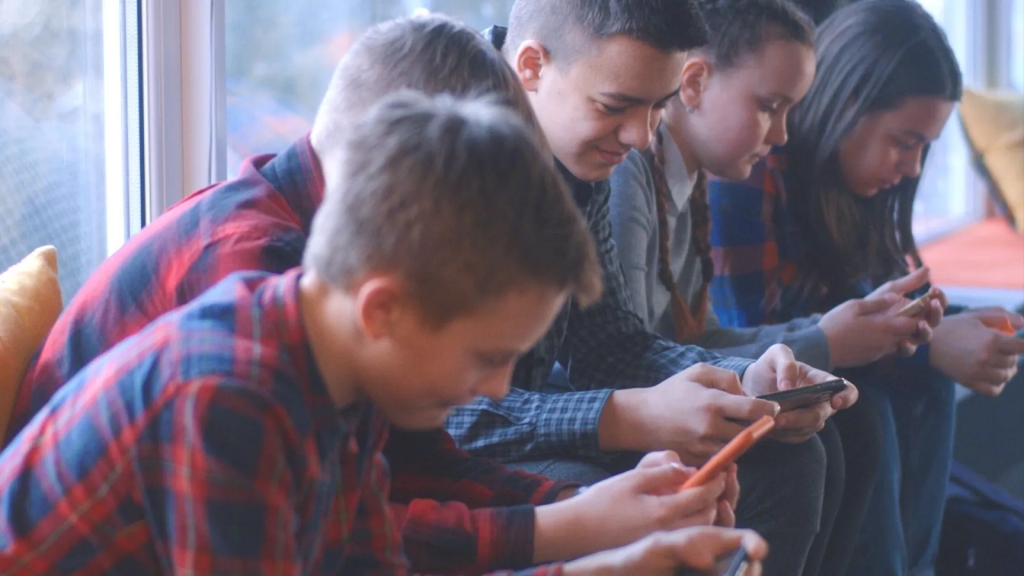Vhen Jesus Fernandez
In July 2023, the United Nations Educational, Scientific and Cultural Organization (UNESCO) published an education report that advises the appropriate use of technology in schools. The report attracted numerous articles in the following days. Seven months later, the matter once again resurfaced these past few days. The UNESCO Director-General Audrey Azoulay acknowledged the “immeasurable potential” of the digital revolution.
by GEM Report UNESCO
In an exclusive interview with Helen Pidd, a certain Esther Ghey asked the technology companies to restrict youth from accessing harmful online content like her daughter, Brianna, who was stabbed to death by her peers who were influenced or using the dark web to plot the murder.
Esther believed that these companies have a “moral responsibility” over the vulnerable, especially those under-16s. She said in The Telegraph, “We need mindfulness in schools and stronger online safety protocols.”
Matt Dathan of The Times reported that “mobile phones will be banned in schools across England… to minimize disruption and improve behavior in classrooms” even at break times. Pupils breaching the ban will face detention, and their phones will be on-the-spot confiscated.
According to the report, education centers may choose one or more of four different policies on this regulation: a total ban on phones on school grounds, leaving their phones at home or with parents; handing over their phones to school staff on arrival and collecting them at the end of classes; storing their phones in lockers while having lessons; and trusting the students not to use their phones during class periods.
The UK Department of Education, Gillian Keegan, affirmed the same position. Published in The Economic Times, she said that the use of mobile phones “can lead to online bullying, distraction, and disruption, resulting in a loss of learning time.”
Although the education secretary is aware that parents have expressed their concern about their children’s safety, especially in an emergency, she said that “[s]chools are places for children to learn and mobile phones are, at a minimum, an unwanted distraction in the classroom.” Keegan also shared with BBC Radio 4 that the students come to school not “to sit on your mobile phones or send messages whilst you could actually talk to somebody.”
The first school to introduce phone lock boxes was Wimbledon High School. Its head teacher, Ben Turner, said that such regulation encourages greater independence and resilience on the part of the youth.
However modest the intention was, the ban on mobile phones in schools is not without adversaries. After the application of the new guidance, school heads said teenagers were addicted to their phones and parents wanted constant contact with their children via videos and text messages.
Alex Harris, the school head of Robin Hood Academy, noticed the withdrawal syndrome from one of his students, “who was almost physically unable to [surrender] the phone to [him].”
Emma Yeomans and Ali Mitib, in The Times, said that some teaching unions also criticized the ban and proposed that the government instead focus on discussing harmful websites. Students are also seen as hesitant to comply.
Instead of banning mobile phones which some kids use in different “sneaky” ways, Hugo Rifkind suggested arranging for a phone signal jammer to be installed on the roof of every school.
Students watch role models and if they are not allowed mobile phones for social use during the day, teachers will have to hand in their phones as well.
(Clarissa Farr, a former high mistress of St. Paul’s Girls School in London – The Times)
Risks also include concerns over data privacy, safety, and well-being of students at young ages as specific applications unnecessarily collect user data.
“[W]hile technology has tremendous potential,” the Global Education Monitoring Report (GEM Report) also acknowledged that, “many tools have not been designed for application to education.”

For Juliet Samuel, in this phoney war, “[t]he latest resistance to change comes from trendy dads and modish head teachers” who for her are “no better than children at using smartphones responsibly because they share fake news”. She added that being part of their habit, “children need to learn to live with/use modern technology and ought to do so from a young age.”
Leo Winkley, the headmaster of Shrewsbury School, asked the government to focus on “the proliferation of online platforms, channels and influences through which children may be exposed to harmful content, however active the school’s cyber-protection systems”
Aware of the risks and opportunities that come with technology which students need to learn and not be shielded from entirely, UNESCO encouraged countries “to give better guidance on what technology is allowed in school and what is not, and on their responsible use. Only technology that has a clear role in supporting learning should be allowed in school.”
